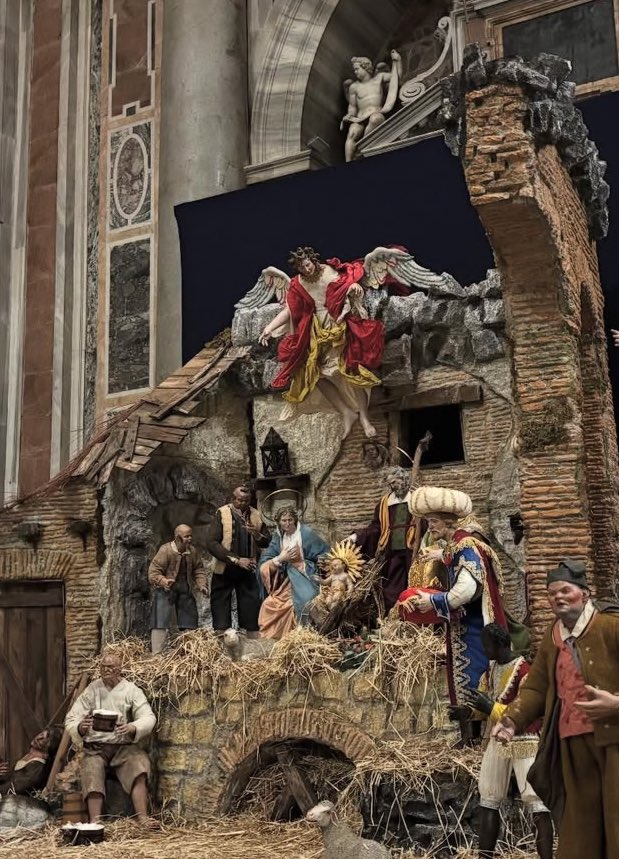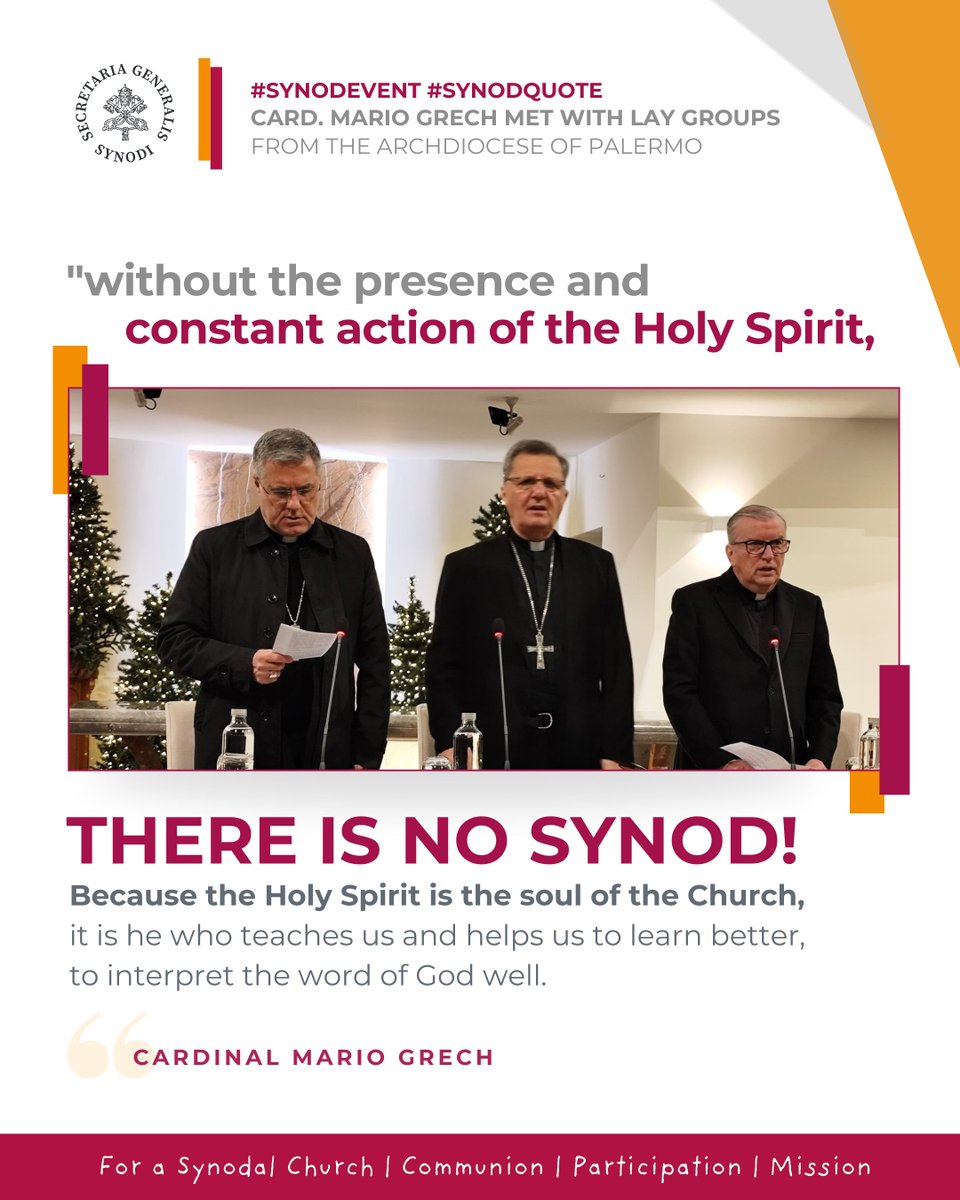Chaos Frank is at it again…
Francis again casts Doubt on the Personhood of the Unborn

The beautiful season of Advent has begun, and if there’s one man who knows how to interrupt this sacred time of penance and preparation for Christmas, it’s the Argentinian apostate Jorge Bergoglio (“Pope Francis”).
On Nov. 22, 2022, the world’s most talkative Jesuit sat down with a few assorted journalists from the Jesuit rag America, giving them a massive interview that was published Nov. 28:
- Exclusive: Pope Francis denounces polarization, talks women’s ordination, the U.S. bishops and more (America)
In addition to the full transcript, America also released sundry photos and the following 1-minute teaser clip:
One of the interviewers was Gloria Purvis. She posed the following question to the man she mistakenly believes is the Pope of the Catholic Church:
Holy Father, abortion is a heavily politicized issue in the United States. We know it is wrong. And the United States Supreme Court recently ruled that there is no constitutional right to abortion. However, it still seems to plague the church in the sense that it separates us. Should the bishops prioritize abortion in relation to other social justice issues?
The false pope’s answer is typical for him — on the one hand, he condemns abortion, and yet at the same time he also gratuitously throws something into his answer to potentially undermine, relativize, or neutralize this condemnation. Here are his words verbatim, in full:
On abortion, I can tell you these things, which I’ve said before. In any book of embryology it is said that shortly before one month after conception the organs and the DNA are already delineated in the tiny fetus, before the mother even becomes aware. Therefore, there is a living human being. I do not say a person, because this is debated, but a living human being. And I raise two questions: Is it right to get rid of a human being to resolve a problem? Second question: Is it right to hire a “hit man” to resolve a problem? The problem arises when this reality of killing a human being is transformed into a political question, or when a pastor of the church uses political categories.
Each time a problem loses the pastoral dimension (pastoralidad), that problem becomes a political problem and becomes more political than pastoral. I mean, let no one hijack this truth, which is universal. It does not belong to one party or another. It is universal. When I see a problem like this one, which is a crime, become strongly, intensely political, there is a failure of pastoral care in approaching this problem. Whether in this question of abortion, or in other problems, one cannot lose sight of the pastoral dimension: A bishop is a pastor, a diocese is the holy people of God with their pastor. We cannot deal with [abortion] as if it is only a civil matter.
(underlining added)
After almost 10 years of “Pope” Francis in action, such an answer is no surprise. Many people in the Vatican II Church are pro-abortion, although the official Novus Ordo position is anti-abortion. With this answer, Bergoglio offers something to everyone — each side can pick what it likes, focusing on only one specific part of his answer. Pro-lifers can report: “Pope compares abortion to hiring a hit man again”; whereas pro-aborts can say: “Pope says Unborn may not be Persons”. And both would be correct.
So let’s examine Francis’ words. First, notice that he omits any mention of the incontrovertible biological fact that human life begins at conception — he strangely only speaks about what can be observed “shortly before one month after conception”. This is not the first time he’s done this; and although nothing he says contradicts the fact that human life begins at conception, the omission is suspect. If we’re going to talk about what “any book of embryology” can tell us, why not also when human life begins? It is at conception that the DNA is determined, anyway. Yet, if we read his words carefully, the false pope states that a living human being exists “shortly before one month after conception” — he says nothing of the initial period beginning with conception. The fact that he needlessly leaves this phase in “limbo”, so to speak, not saying one way or another, is highly suspect and very dangerous.
Next, Francis does further damage. He refuses to affirm that the human being in the womb from “shortly before one month after conception” on is a person, because “that is debated”. But by whom, and where, and to what end? Anything in this world is “debated” — including, we might add, the question whether he is the Pope. Obviously, what people may or may not debate can hardly be the standard for the Catholic. The real question is whether the personhood of the unborn is debatable.
It is not. Francis is opening a dangerous door here, and once again he does so gratuitously, that is, without any good reason. He asserts, in effect, that there is (or there may be) a difference between a human life and a human person, and that it is legitimate to disagree on the matter. Yet it is precisely the denial of the personhood of the unborn (and, for example, of the terminally ill who have irreversibly lost consciousness) that the “throw-away culture” — Francis’ term — thrives on, since they make it — the lack of personhood, not the lack of human life — the determining moral factor. So why bring it up? Why allow the enemies of innocent human life to get their foot in the door like that?
Of course Bergoglio’s reason for withholding his judgment on whether the little fetus is a person, is a mere excuse. We know this because there are plenty of things that are indeed debated and debatable that he has a very dogmatic attitude on. Just think of topics such as man’s impact on the climate, the duty of welcoming migrants, the importance of ecological conversion, or the moral question of the death penalty. These issues are not open to debate for Bergoglio. But the personhood of the unborn is? Absurd!
According to official Novus Ordo teaching that Francis subscribes to, the personhood of the unborn from the moment of conception was never defined magisterially, but is also not questioned: “The human being must be respected – as a person – from the very first instant of his existence”, says the 1987 CDF instruction Donum Vitae (I.1). It was signed by then-“Cardinal” Joseph Ratzinger and approved by “Saint” John Paul II. This teaching was included in the official 1992 Novus Ordo Catechism of the Catholic Church (n. 2270) and in John Paul’s 1995 encyclical Evangelium Vitae (n. 60).
Then Francis raises two questions, namely: “Is it right to get rid of a human being to resolve a problem? Second question: Is it right to hire a ‘hit man’ to resolve a problem?” It would have been even better if instead of merely raising the questions, he could also have answered them. Because, believe it or not, there are people out there who do believe it is right to “get rid of a human being to resolve a problem”. Among them are such people as Emma Bonino, Nancy Pelosi, and Joe Biden, all of whom this “Pope” has received with open arms. Francis even called Bonino, who formerly carried out abortions herself when doing so was illegal in her country, one of Italy’s “forgotten greats”. And just the other day he appointed a pro-abortion atheist to the “Pontifical Academy for Life”. Actions speak louder than words.
All of Francis’ twaddle about “pastoral dimension” and what not, we can safely ignore. He was asked a straightforward question about whether the Novus Ordo bishops of the U.S. should prioritize abortion over other matters, and he’s obviously not interested in answering, which is itself an answer. We all know that when it comes to abortion, he says one thing (and sometimes two things) and does another:
It is also noteworthy that Francis pits “pastoral” against “political” in his answer to Gloria Purvis, as if the two terms were mutually exclusive. He probably does this simply in order to redirect the readers’ attention away from the original question. Either way, it is utterly ironic that he uses the word “political” in such derogatory fashion there, considering that at other times, Bergoglio lauds politics as “the highest form of charity”.
But then, that is how Bergoglio operates: create the greatest possible confusion by sending mixed signals, by giving all sides a little something, and by saying one thing while doing another.
Image source: YouTube (screenshot)
License: fair use





No Comments
Be the first to start a conversation